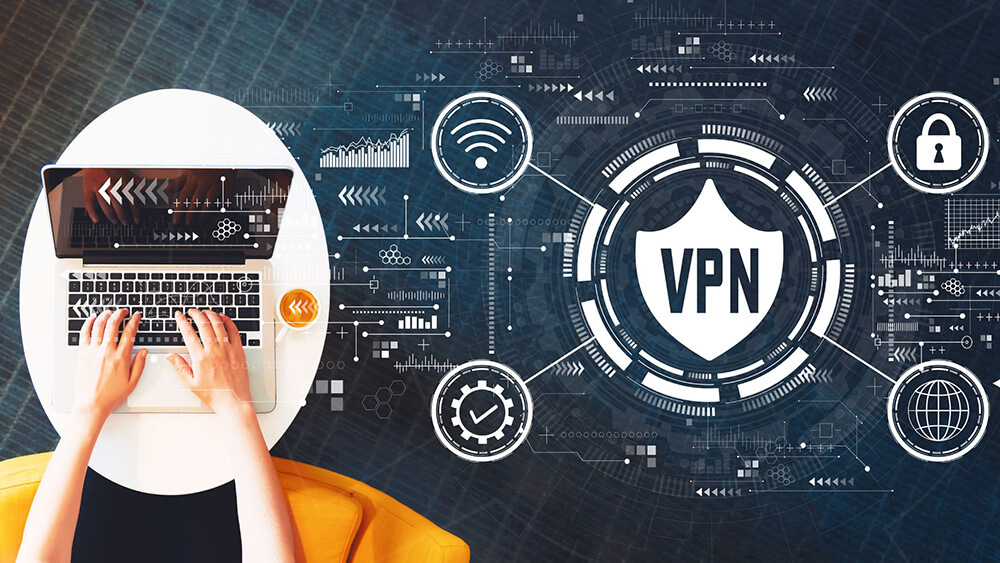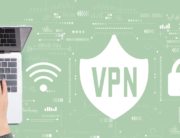Home / Handy Tips /
In the ever-evolving digital landscape, Virtual Private Networks (VPNs) have emerged as essential tools for ensuring online privacy and security.
Basically, a VPN creates a secure tunnel, encrypting your internet connection to shield your online activities from potential threats.
Whether you’re a remote worker, a frequent traveller or just someone who’s conscious of your digital footprint, VPNs offer a vital layer of protection by masking your IP address and routing your internet traffic through secure servers.
In this article, we delve into the world of VPNs, exploring the fundamental role encryption plays in strengthening our online presence.
What is VPN encryption?
At its core, VPN encryption is the virtual bodyguard of your online presence, ensuring that your data remains secure and your privacy is kept intact.
It works by using sophisticated algorithms to transform your data into an unreadable code as it travels from your device to the VPN server. This encrypted data serves as an impenetrable shield, making it nearly impossible for anyone trying to intercept it to make sense of the information.
In practical terms, VPN encryption protects sensitive data from potential eavesdroppers and masks your true online identity by cloaking your IP address.
Types of VPN encryption protocols
When it comes to choosing the right VPN encryption protocol, it’s like selecting the best tool for the job. OpenVPN stands out for its versatility and strong security features, being open-source and adaptable.
L2TP/IPsec strikes a balance between speed and security by combining Layer 2 Tunnelling Protocol (L2TP) and Internet Protocol Security (IPsec). Tunnelling protocols involve bundling up data to send privately over public networks, while IPsec encrypts the information for confidentiality.
For those constantly on the move, IKEv2 (Internet Key Exchange version 2) / IPsec is known for seamlessly transitioning between networks. IKEv2 also uses tunnelling protocols and is able to set up secure connections between VPN clients and VPN servers allowing for the safe transfer of data.
However, no solution is flawless, and each protocol has its potential vulnerabilities.
OpenVPN, while it’s robust, may face speed challenges and it needs a stable internet connection.
The closed-source nature of L2TP/IPsec and IKEv2/IPsec can present its own set of issues. For example, closed protocols can lack transparency in communicating their vulnerabilities and the discontinuation of support can leave users without updates, limiting its effectiveness.
Understanding these issues is crucial when choosing the best option for your specific digital needs.
How to choose a secure VPN
Selecting a secure VPN is like choosing a reliable guardian for your online activities, and a key factor in this decision lies in the strength of its encryption protocols.
- Prioritise VPN services that employ robust encryption standards like OpenVPN, L2TP/IPsec or IKEv2/IPsec, ensuring that your data has a secure journey across the digital landscape.
- Check for a no-logs policy, which guarantees that the VPN provider doesn’t store your sensitive information, boosting your privacy.
- Opt for services with a large server network, allowing you to connect to diverse locations for added anonymity.
- Also consider the user interface, speed and customer support, as these contribute to an overall positive VPN experience.
By making encryption protocols a focal point in your decision-making process, you’re not just selecting a VPN. You’re choosing a trusted ally in safeguarding your digital footprint.
Ready to strengthen your digital defenses?
Contact Computer Cures today to embark on a journey towards a safer online experience. Our expert team is able to diagnose and deal with any digital vulnerabilities your system may have. From implementing robust antivirus solutions to setting up secure VPNs, we tailor our solutions to suit your specific needs.
Don’t wait for potential threats —reach out to us now to help safeguard your data and privacy. Contact us for a proactive approach to computer security that goes beyond just prevention – let us help ensure your security in the digital world.









Leave A Comment